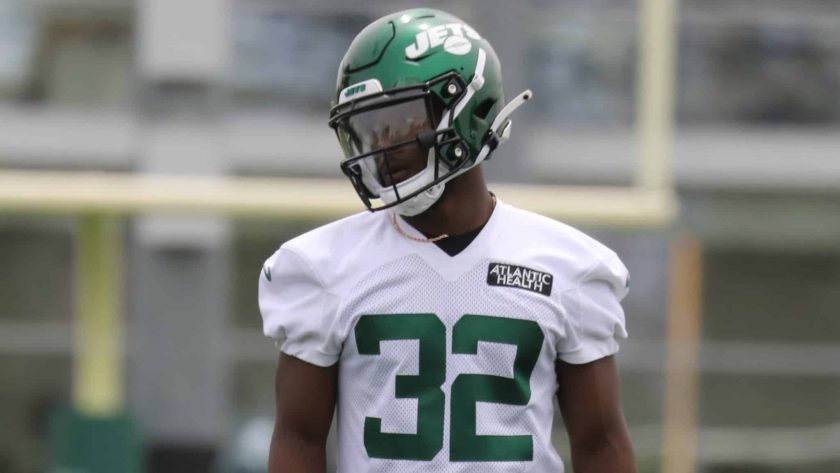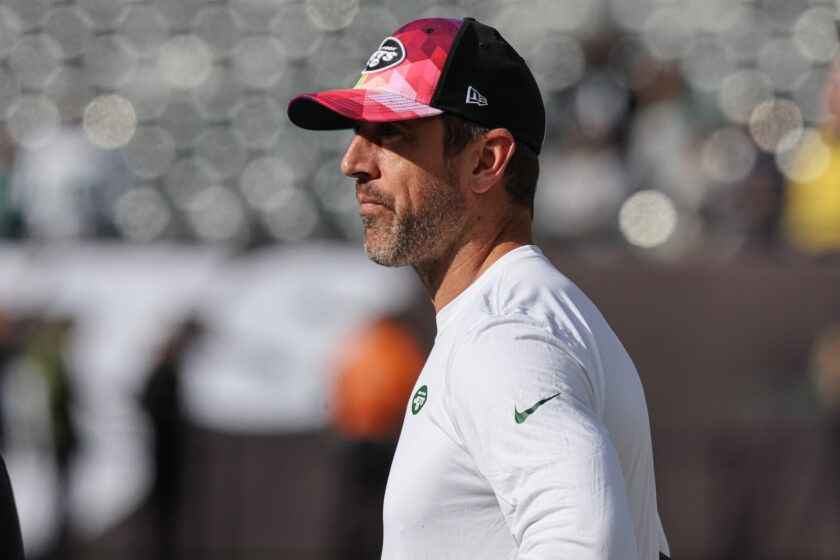What role could Jets 4th-round RB Michael Carter assume?

Running back Michael Carter should add firepower to a talented slate of Jets offensive weapons. What exact role may he take on?
[sc name=”ryan-honey-banner” ]The Jets felt the need to bolster the running back room following the selection of quarterback Zach Wilson at No. 2 overall.
Enter: Michael Carter, a stud back out of North Carolina who implements great speed and acceleration into his playstyle.
He impressed during the offseason program and could eventually become a top back in this league if the necessary effort is made. But initially, throughout his rookie campaign, Carter may need to share some of the wealth.
A committee-based approach is the way to go
One of the main goals for this offensive unit in 2021 should be for Wilson to efficiently and effectively develop, to the point where there’s enough confidence he can be the long-term answer at quarterback.
For this to occur, the Jets will need to provide Wilson with a number of reliable weapons, including at the running back position. Utilizing a running back committee and fielding different backs in different situations would keep opposing defenses on their toes, and playing numerous backs to their strengths would help the offensive unit remain creative and truly maximize its own talent.
This all could assist in the on-field improvement of Wilson by taking much pressure off of him.
In turn, employing a committee would lead to Michael Carter acquiring enough reps to become accustomed to the speed of the professional game and help him best exercise his superior on-field skills in the right scenarios.
Carter’s role within the committee
As of right now, the three main backs a part of the potential Jets running back committee are Carter, second-year man La’Mical Perine, and veteran Tevin Coleman.
Perine could possibly sit atop the depth chart right away and Coleman might be more of a mentor to the pair of young players while the organization eases Carter into the mix.
Perine employs a larger frame at 5-foot-11, 216 pounds and could be utilized on short-yardage downs and near the goal line given the size and power. Carter is more of a speed back and may additionally find time on special teams as a return specialist (he returned 29 kicks during his collegiate tenure at North Carolina). Coleman, on the other hand, could be used on passing downs considering he’s previously succeeded in that area of the game (he’s experienced seasons with 31 and 32 receptions).
Overall, the Jets must use Carter correctly
The Jets made an investment in Carter and they’ll want to get a significant amount out of him. However, they can’t throw everything at him right away. In a committee with Perine and Coleman also in the mix, Carter wouldn’t be overwhelmed with on-field responsibilities and could play to his own strengths.
Every rookie must undergo a noteworthy transition — Carter is no exception. Spreading the wealth and including the now-former Tar Heel in a committee instead of having him assume the majority of the load would be beneficial for him during the initial stages of his pro career.
- DRAFTKINGS SPORTSBOOK
BET $5 & GET $150 IN BONUS BETS INSTANTLY!
- FANDUEL SPORTSBOOK
BET $5, GET $150 BONUS!
- CAESARS SPORTSBOOK
$1,000 BET ON CAESARS!
- BETMGM SPORTSBOOK
BET $5, GET $158 BONUS!
- BET365
GET $150 BONUS OR $2,000 FIRST-BET SAFETY NET!











